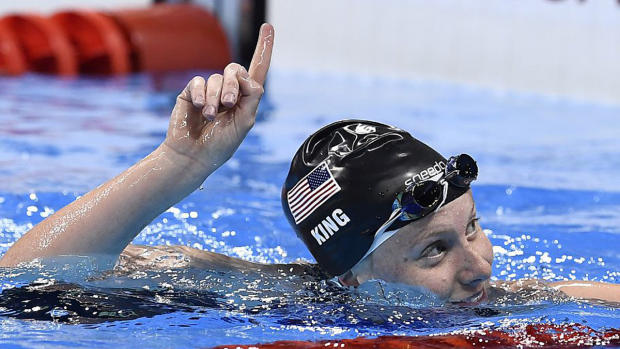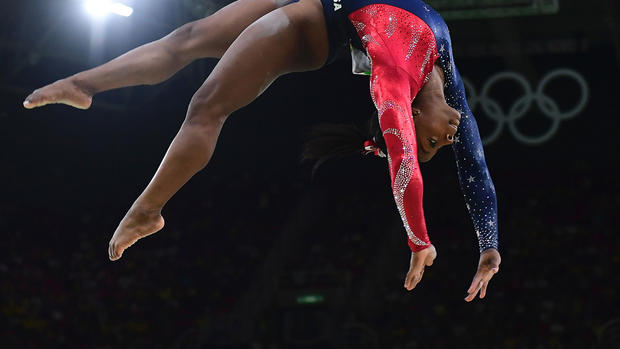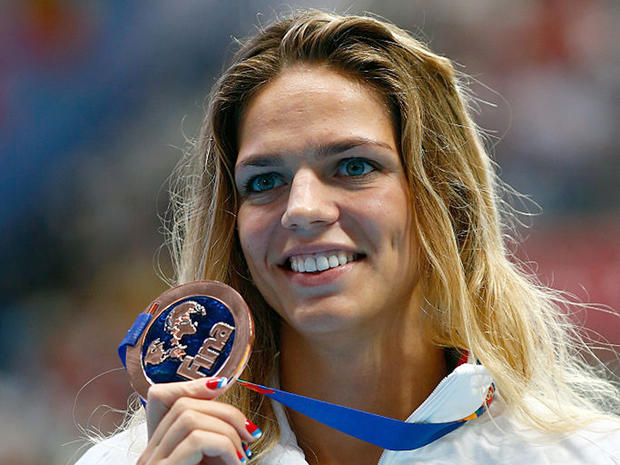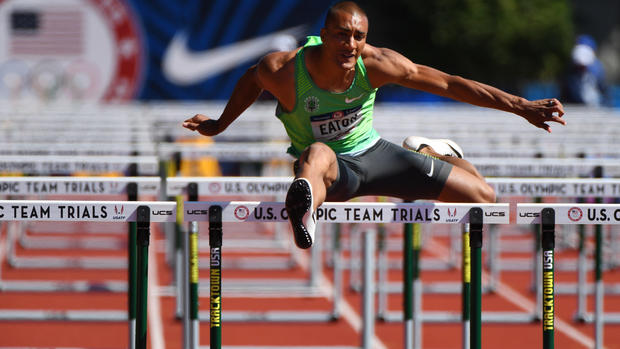American Olympic swimmer calls out "drug cheating" Russian champion
RIO DE JANEIRO - American Lilly King has her sights set on winning Olympic gold and she's not about to let anyone get in her way, especially not world champion breaststroker Yulia Efimova of Russia. King made that clear in a finger-waving display worthy of Dikembe Mutombo as she disparaged the Russian for doping.
Efimova is being allowed to compete at the Rio de Janeiro Games following a 16-month suspension for doping and despite another positive test this year for the now-banned substance meldonium. The 24-year-old Russian is a flashpoint in her country's doping scandal because of her two infractions.
When Efimova waved a No. 1 finger after her semifinal on Sunday, King leaned back and gave her own version toward Efimova's face on a TV monitor.
King then qualified fastest for the eight-woman final in 1 minute, 5.70 seconds, just ahead of Efimova's time of 1:05.72.
CBSSports.com's Adam Silverstein reports that after placing first in her heat and the semifinals as a whole, King was interviewed by NBC and asked specifically about her finger wag from minutes earlier and what was going through her head at the time. Many believed it was in response to a finger wag from King earlier in the competition.
This is where King slayed Efimova and probably further hindered U.S.-Russian relations.
"You're shaking your finger No. 1, and you've been caught for drug cheating. I'm just not a fan," she said.
The two women square off in the 100-meter breaststroke final Monday night, swimming next to each other.
Efimova's positive test for meldonium was placed on hold while world anti-doping officials conduct further studies on the drug. Russian tennis star Maria Sharapova was famously suspended for the drug earlier this year. Also known as mildronate, it is typically prescribed for heart failure patients in some parts of Europe. When taken by athletes, meldonium may also help increase endurance performance, improve rehabilitation after exercise, protect against stress, and enhance the central nervous system, according to a 2015 study by German scientists.
Efimova was one of seven Russians banned from the 2016 Rio Olympics by the International Swimming Federation in response to revelations of widespread, state-sponsored doping by Russia. This came after she had just finished a year-plus suspension for doping and had another more recent failed test overturned.
"If that's what she feels she needs to be able to compete, whatever, that's her deal," King told reporters. "I'm here to compete clean for the U.S. and that's what I'm going to do."
A smattering of boos greeted Efimova after she won her preliminary heat Sunday. The Russian men's 4x100 freestyle relay was also booed when introduced for their final the same night.
Ruta Meilutyte of Lithuania, the world record holder in the 100 breast, said Efimova's doping history is disrespectful to other athletes.
"We train fair," she said. "When something like that happens, it's never nice. These are not the values of our sport."
Kirsty Coventry of Zimbabwe, a seven-time Olympic swimming medalist competing in Rio, serves on the International Olympic Committee's athletes' commission.
"Hopefully, that ban made her clean in a way," she said of Efimova. "Hopefully, people that are cheating now know that they're going to get caught. It's just a matter of time. It's a little disappointing that there are certain people that are here."
As part of the International Olympic Committee's decision not to throw the entire Russian team out of the Olympics, Efimova was initially banned along with six other Russian swimmers who either had positive tests on their record or were named in an investigation of Russia's massive, state-sanctioned doping scheme.
Now, it looks like they'll all be competing in Rio de Janeiro, though world swimming body FINA has not fully explained why.
Efimova is also expected to swim the 200 breaststroke and presumably the 4x100 medley relay.
Efimova declined to speak with reporters after the semifinals, but promised to talk after Monday's final. Earlier Sunday, she described the last six months as "crazy" and said she didn't "understand what's going on."
When pressed about criticism from rival swimmers and coaches, she smiled and walked away.
U.S. swimmer Dana Vollmer said King and Katie Meili assumed all along that Efimova would be racing in Rio and prepared accordingly. Meili also advanced to the final.
"She has something to prove," Vollmer said of King. "That question (about Efimova) kind of adds some fire to a lot of us. Lilly is doing an amazing job of directly putting that into her racing."
Winning gold and in the process beating Efimova would be especially meaningful to King, who will be a sophomore at Indiana University this fall.
"Obviously it would be great with all the doping things going on in the past year or two," she said. "It would be a really great moment for the U.S."
Coventry struggles with the knowledge that sometimes cheating athletes do get a precious moment on the world stage, receiving Olympic medals in the limelight only to get caught later. Then their medal is taken away and re-awarded to another athlete when the world is no longer watching.
"That is hard," she said. "That will be heartbreaking for a lot of athletes."



